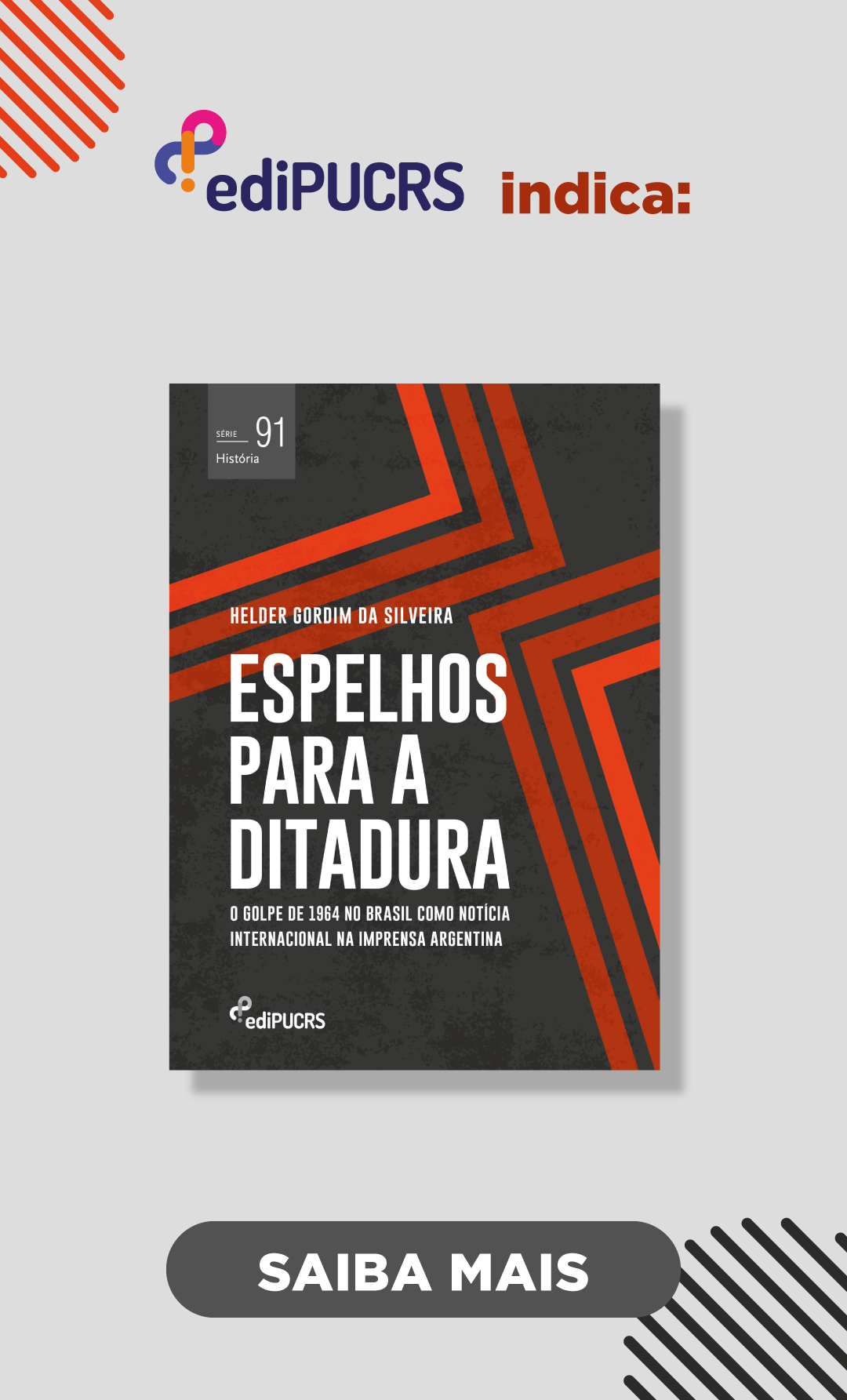The eco of the 2018 elections in cyberspace
The voices of the streets on the networks (and vice versa)
DOI:
https://doi.org/10.15448/2178-3748.2021.1.39422Keywords:
Elections 2018, #HeNo, Social mediaAbstract
The growth of social movements such as Feminism has been remarkable. Removing conservative perspectives on it, its need, legitimacy, and importance, as well as advances and achievements, are undeniable. The changes we are going through due to the intensive insertion of the internet in our daily lives are also being reflected in the ways of struggle, debate, and expression. In this sense, it is also notable the growing number of women engaged, organized by their rights and how this enhances the political strength of these organizations. Manuel Castells (2012) states that the intrinsic relationship between socio-political actions that start on social networks and impact cohesive and politically engaged crowds are causing these huge changes in the political-institutional direction. It is from this perspective that we intend to understand the articulation that occurred in the 2018 Elections in Brazil. In this sense, we will look at the movement carried out by women, known as “Ele Não”, and the articulations made by supporters of the then candidate Jair Bolsonaro.
Downloads
References
ALMEIDA, Silvio Luiz de. Neoconservadorismo e liberalismo. In: GALLEGO, Esther Solano (org.). O ódio como política: a reinvenção das direitas no Brasil. 1 ed. São Paulo: Boitempo, 2018. p. 27-32.
ARANTES, P. E. Nova direita surgiu após junho, diz filósofo: depoimento. [Entrevista cedida a] Eleanora de Lucena. Revista Folha de S. Paulo, 2014. Disponível em: https://www1.folha.uol.com.br/paywall/login.shtml?https://www1.folha.uol.com.br/poder/2014/10/1541085-nova-direita-surgiu-apos-junho-diz-filosofo.shtml. Acesso em: 25 abr. 2016.
BARROS, D. L. P. A identidade intolerante no discurso separatista. Filologia Linguística Portuguesa, v. 9, p. 147-67, 2007.
CASARA, Rubens. Precisamos falar da “direita jurídica”. In: GALLEGO, Esther Solano (org.). O ódio como política: a reinvenção das direitas no Brasil. 1. ed. São Paulo: Boitempo, 2018. p 73-78.
CASIMIRO, Flávio Henrique Calheiros. As classes dominantes e a nova direita no Brasil contemporâneo. In: GALLEGO, Esther Solano (org.). O ódio como política: a reinvenção das direitas no Brasil. 1. ed. São Paulo: Boitempo, 2018. p. 41-52
CASTELLS, Manuel. Conferencistas: Manuel Castells. Disponível em: https://www.fronteiras.com/conferencistas/manuel-castells. Acesso em: 5 abr. 2018.
CHAUÍ, M. 2016. Sociedade brasileira: violência e autoritarismo por todos os lados: depoimento. [Entrevista cedida a] Juvenal Savian Filho e Laís Modelli. Revista Cult, 2016. Disponível em: www.revistacult.uol.com.br/home/2016/02/sociedade-brasileira-violencia-e-autoritarismo-por-todos-os-lados. Acesso em: 25 abr. 2020.
COELHO, Denis Augusto Carneiro. Bolhas de Ódio: O Ódio como Componente Político nas Dinâmicas Interacionais Societárias Mediadas por Tecnologias de Comunicação Instantânea (TCIs). 2018. Dissertação (Mestrado em Ciências Sociais) – Pontifícia Universidade Católica de São Paulo PUC-SP. São Paulo, 2018.
GALLEGO, Esther Solano (org.). O ódio como política: a reinvenção das direitas no Brasil. São Paulo: Boitempo, 2018.
INSTITUTO BRASILEIRO DE GEOGRAFIA E ESTATÍSTICA (IBGE). IBGE. [20--]. Disponível em: https://www.ibge.gov.br. Acesso em: 9 abr. 2021.
KONDER, Leandro. Introdução ao fascismo. Rio de Janeiro: Edições do Graal, 1977.
LÖWY, M. Conservadorismo e extrema-direita na Europa e no Brasil. Serviço Social & Sociedade, n. 124, p. 652-64, 2015.
MAITINO, Martin Egon. “Direita, sem vergonha”: conformações no campo da direita no Brasil a partir do discurso de Jair Bolsonaro. Plural: Revista do Programa de Pós-Graduação em Sociologia da USP, São Paulo, v. 25, n. 1, p. 111-134, dez. 2018. Disponível em: https://www.revistas.usp.br/plural/article/download/149018/146178/. Acesso em: 12 out. 2019.
MARTÍN-BARBERO, J. Cultura y Nuevas Mediaciones Tecnológicas. In: América Latina otras visiones desde la cultura: Ciudadanías, Juventud, Convivencia, Migraciones, Pueblos Originarios, Mediaciones tecnológicas. Convenio Andres Bello: Colombia, 2005.
MESQUITA, Paula Fabrícia Brandão Aguiar. Quando elas dizem #elenao: análise sobre os novos feminismos e coletivos juvenis on line. In: CONGRESSO BRASILEIRO DE SOCIOLOGIA, 19., 2019, Florianópolis. Resumos [...]. Florianópolis: UFSC, 2019. Disponível em: http://www.sbs2019.sbsociologia.com.br/simposio/view?ID_SIMPOSIO=38. Acesso em: 12 ago. 2020.
MIGUEL, Luis Felipe. A reemergência da direita brasileira. In: GALLEGO, Esther Solano (org.). O ódio como política: a reinvenção das direitas no Brasil. 1. ed. São Paulo: Boitempo, 2018. p 17-26.
MORAIS, A. R. A. DE. O discurso político da extrema-direita brasileira na atualidade. Cadernos de Linguagem e Sociedade, v. 20, n. 1, p. 152-172, 4 mar. 2019.
PEREZ, Olívia; RICOLDI, Arlene. A quarta onda do feminismo?: Reflexões sobre movimentos feministas contemporâneos. In: ENCONTRO ANUAL DA ANPOCS, 42., 2018, Caxambu. Anais [...]. Caxambu, MG: out. 2018. Disponível em: http://www.anpocs.com/index.php/encontros/papers/42-encontro-anual-da-anpocs/gt-31/gt08-27/11177-a-quarta-onda-do-feminismo-reflexoes-sobre-movimentos-feministas-contemporaneos?path=42-encontro-anual-da-anpocs/gt-31/gt08-27. Acesso em: 13 set. 2019.
PNAD Contínua TIC 2018: Internet chega a 79,1% dos domicílios do país. Agência Ibge Notícias. [S. I.], 29 abr. 2020. Disponível em: https://agenciadenoticias.ibge.gov.br/agencia-sala-de-imprensa/2013-agencia-de-noticias/releases/27515-pnad-continua-tic-2018-internet-chega-a-79-1-dos-domicilios-do-pais. Acesso em: 29 jul. 2020.
ROCHA, Fernanda De Brito Mota. A quarta onda do movimento feminista: o fenômeno do ativismo digital. 2017. Dissertação (Mestrado em Ciências Sociais) – Universidade do Vale do Rio dos Sinos, São Leopoldo, 2017. Disponível em: http://www.repositorio.jesuita.org.br/handle/unisinos/6728. Acesso em: 12 jun. 2019.
Downloads
Published
How to Cite
Issue
Section
License
Copyright (c) 2021 Oficina do Historiador

This work is licensed under a Creative Commons Attribution 4.0 International License.
Copyright
The submission of originals to Oficina do Historiador implies the transfer by the authors of the right for publication. Authors retain copyright and grant the journal right of first publication. If the authors wish to include the same data into another publication, they must cite Oficina do Historiador as the site of original publication.
Creative Commons License
Except where otherwise specified, material published in this journal is licensed under a Creative Commons Attribution 4.0 International license, which allows unrestricted use, distribution and reproduction in any medium, provided the original publication is correctly cited.





